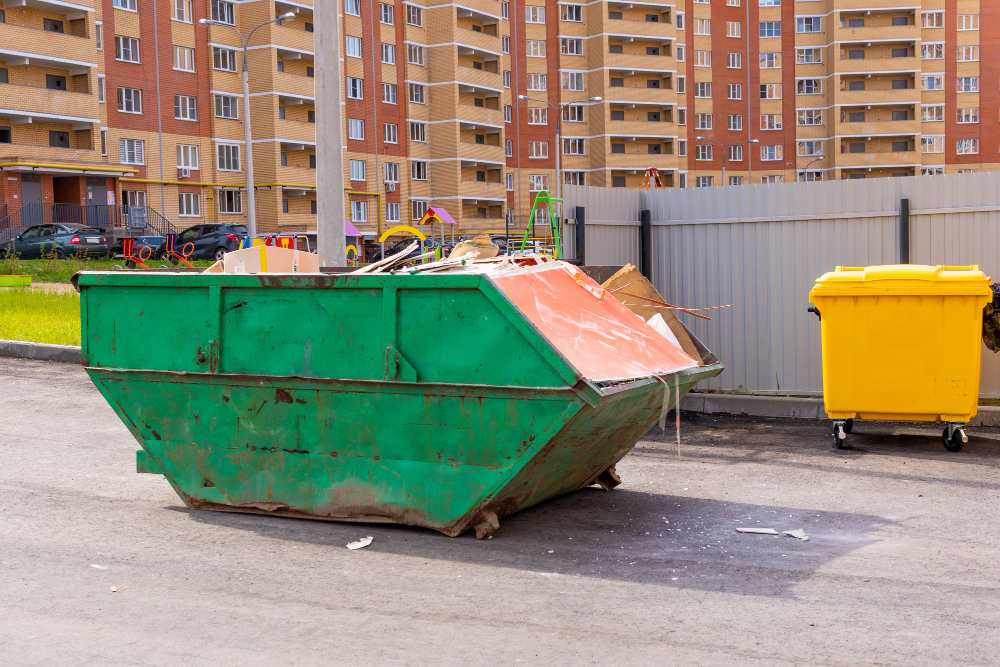


For many who are embarking on a major renovation or construction project, a roll-off container rental can be a great solution for disposing of construction debris, landscaping waste, and other types of debris. Therefore, it is important to understand what can and cannot go into a roll-off container to avoid any legal and safety issues. This blog post will provide an overview of what you can and cannot dispose of in a roll-off container.
Most roll-off containers typically accept construction debris, green waste, and household debris. Construction debris includes materials such as drywall, wood, flooring, brick, and concrete. Green waste includes yard waste, such as tree branches, leaves, and grass clippings. Lastly, household debris includes everyday household items, such as furniture and appliances that you no longer need.
Even though roll-off containers might be convenient, they have restrictions on what you can dump, and these vary among dumpster rental companies and according to local regulations. Some of the items that are not allowed in a roll-off container include hazardous waste, radioactive materials, tires, batteries, and electronic waste products. Hazardous waste includes chemicals and materials that can damage the environment and compromise the safety of people. Hence, it is important to check with your dumpster rental company or consult with local regulations to know what is prohibited.
Every State and municipality has its regulations on disposing of waste materials. Hence, it is essential to be aware of local regulations to avoid any legal issues and to keep those in your community informed by being environmentally responsible. Some cities and municipalities prohibit the disposal of hazardous materials in roll-off containers and restrict the amount of waste that can be thrown away in one pick-up.
Roll-off containers have a maximum weight capacity that, if exceeded, can pose a safety risk to the driver and others on the road. This is one critical factor that you should consider when renting a roll-off container. Materials like concrete and dirt weigh much more than household debris, so it is good to plan ahead and know more about your disposal needs.
As a responsible entity, it's crucial to be mindful of the impact your waste has on the environment and on those around you. Recycling initiatives, recycling electronics, donating household items that are still in good condition, and composting yard waste all contribute to reducing the amount of waste in our communities, which is an essential aspect to reduce a carbon footprint and proper waste management.
With every renovation or construction project, proper waste management is an essential aspect of successful completion and environmental responsibility. By understanding what can and cannot be thrown in a roll-off container, you can make the most out of your rental period and avoid potential issues with local regulations. Get informed about local regulations, contact a waste management consultant, and book Tip Top Containers. Here, we can help you understand what you can and cannot throw into your roll-off container, and advise you on the most suitable size and weight capacity that your project requires. If you're looking for a roll off container rental in Orlando, FL, contact Tip Top Containers today to request a quote.